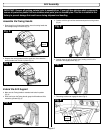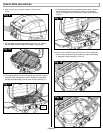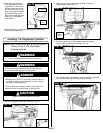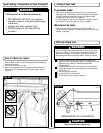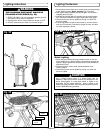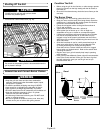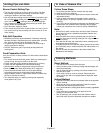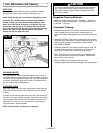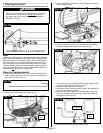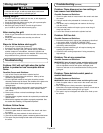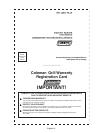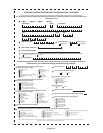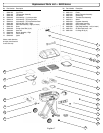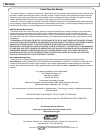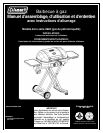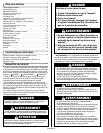Special offers from our partners!

Find Replacement BBQ Parts for 20,308 Models. Repair your BBQ today.
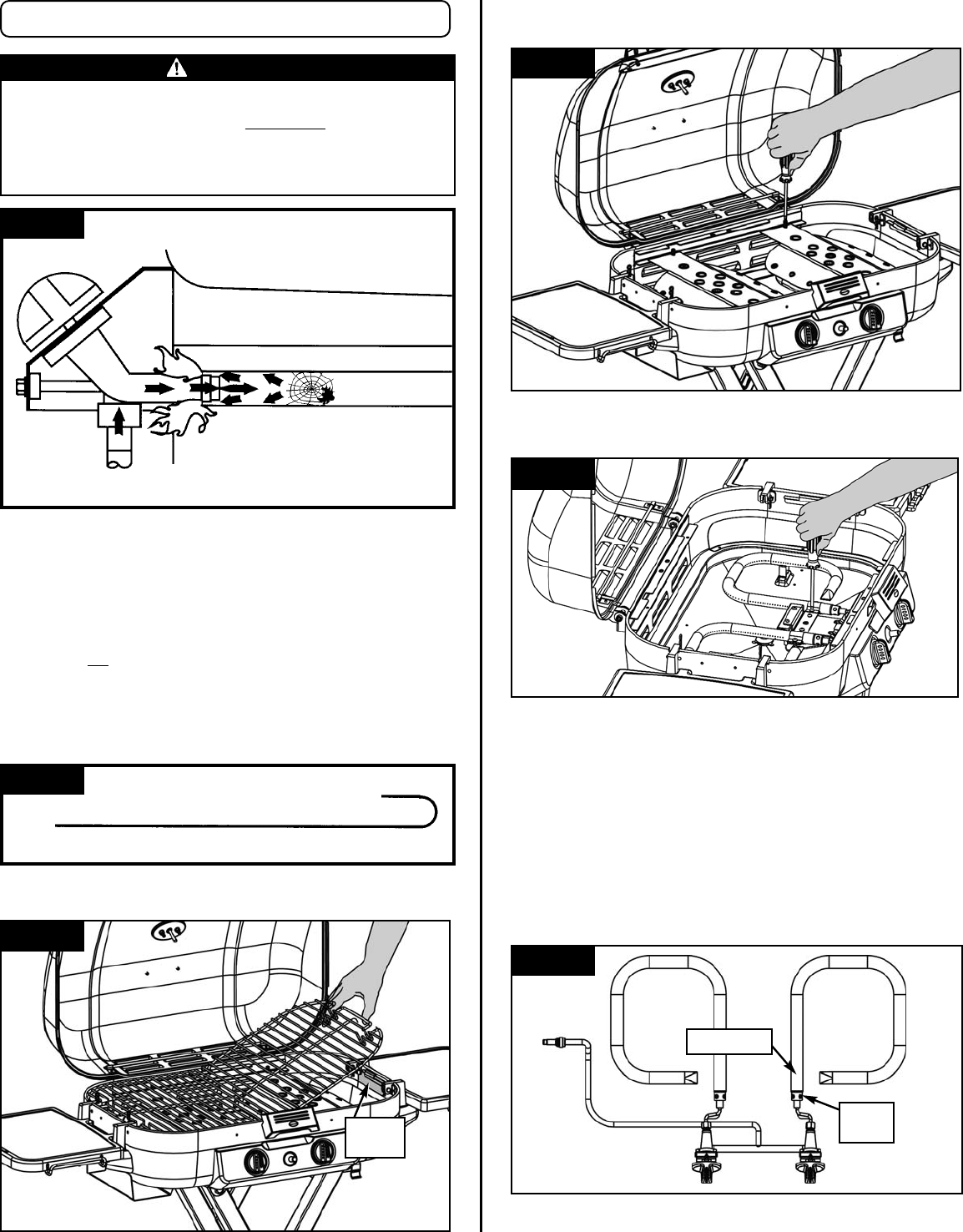
REPRESENTATIVE ILLUSTRATION
WARNING
Spider’s nests or wasp’s mud inside the venturi may cause
fire at the valve. If a fire occurs, immediately
turn off the
gas supply at the L.P. cylinder valve (see representative
illustration in Fig. 29).
Note:
Spiders and small insects can spin webs and build nests inside the
venturi tubes.This especially occurs in late summer and fall before
frost when spiders are most active. These nests can obstruct gas
flow and cause a fire in and around the burner valves. Such a fire
can cause operator injury and serious damage to the grill. To help
prevent a blockage and ensure full heat output, clean and inspect
the venturi tubes often (once or twice a month). NOTE: Water or air
pressure will not
normally clear a spider web.
Fig. 29
Cleaning the Venturi
Steps For Cleaning Venturi:
1. To remove the above obstructions, use an accessory flexible venturi
brush or bend a small hook on one end of a 20-inch long flexible wire
such as the one shown in Fig. 30.
Fig. 30
2. Remove the cooking grates set aside (Fig. 31).
Fig. 31
Spring
Latch
Fig. 32
3. Using a screwdriver, remove the screws holding the heat tents
and set aside (Fig. 32).
Fig. 33
4. Using a screwdriver, remove the self-tapping screws holding
the burner clamps and remove the burners (Fig. 33).
5. Look inside lower end of venturi tubes for nests, webs or mud.
If present, clean as shown in Step 1, Fig. 30.
6. Inspect and clean the burner if needed.
7. Replace the main burners and burner clamps, and position the
burners in the operating position.
8. Make sure the valve orifices are inside the venturi tubes and
the venturi tubes are inside the burner tubes, then tighten all
self-tapping screws (Fig. 34).
9. Reinstall the heat tents and the cooking grates.
Fig. 34
Burner Tube
Venturi
Tube
English-13



